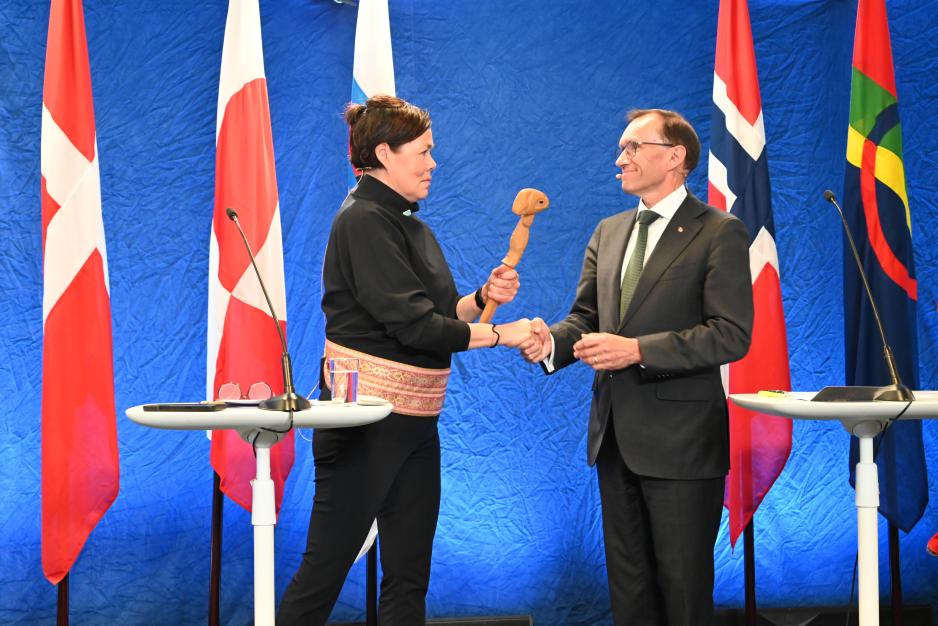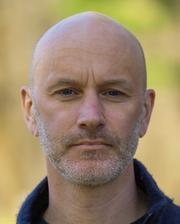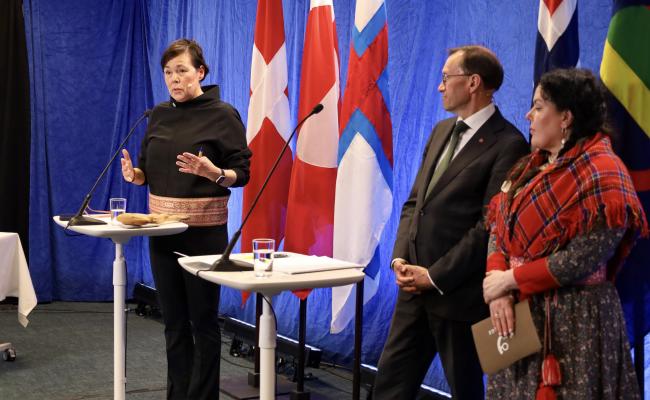New AMAP report: Arctic Council Working Groups Must Persist Despite Putin and Trump, Says Researcher

On May 12th, the chairship of the Arctic Council was handed over from Norway to the Kingdom of Denmark. The council is just starting to look forward after some tumultuous years in which survival has been the primary concern. (Photo: the Arctic Council)
AMAP's new Arctic climate report for 2024 shows that the Arctic climate is continuing to change at an alarming rate. Yet, the current geopolitical landscape makes it challenging to translate these findings into political action. "But the Arctic Council Working Groups must continue their work," says FNI researcher Svein Vigeland Rottem. "There will come a time after Trump and Putin."
One of the Arctic Council's six Working Groups, the Arctic Monitoring and Assessment Programme (AMAP), recently released its Arctic Climate Change Update 2024, summarizing key trends and impacts on the Arctic climate.

Svein Vigeland Rottem, Senior Researcher at FNI. (Photo: FNI)
Sadly, the Arctic region continues its downward spiral in terms of climate. The report shows that extreme weather events, wildfires, melting ice, and ocean acidification have become the new normal in the Arctic. In fact, the negative developments are speeding up.
The report presents proposals for action to counteract this development; however, gaining political traction has become increasingly difficult over the past decade.
"While the Arctic Council Working Groups do not have much political influence today, it is important that they carry out their work and function as an agenda-setting body," says Svein Vigeland Rottem, Researcher at the Fridtjof Nansen Institute, to HNN.
"There will come a time after Trump and Putin."
Arctic Monitoring & Assessment Programme (AMAP)
One of the six working groups of the Arctic Council. The Arctic Council is the leading intergovernmental forum in the Arctic, and the council's activities are primarily conducted in the Working Groups.
It is the responsibility of the Working Groups to execute the programs and projects mandated by the Arctic Council Ministers.
Responsible for monitoring and assessing the status of the Arctic region concerning pollution and climate change issues.
Mandated to document levels and trends, pathways and processes, and effects on ecosystems and humans.
Proposes actions to reduce associated threats for government consideration.
Produces science-based and policy-relevant assessments and products for public outreach.
Enough research, more action
In recent years, many have argued that there is sufficient research on the impacts of Arctic climate change; what is really needed is action by decision-makers. Yet, in the current political landscape, the multilateral climate action needed in the Arctic is far-fetched.
After the Ukraine War, all scientific cooperation with Russia was discontinued. The Arctic Council's work was temporarily paused in March 2022. Since February 2024, the council's working groups have resumed official meetings in digital format, while meetings at the diplomatic and political levels have remained paused.
The council has primarily focused on surviving after Russia's full-scale invasion of Ukraine, and has only recently managed to start looking toward the future.
On the other side of the Atlantic, US President Donald Trump has launched his own attack on science through mass firings, cuts in funding, and limitations to research and education.
With this, climate action—a highly cooperative field—has been put on the back burner and will likely remain there for some time.
"The Working Groups are asking themselves why they are doing this and why they should continue, but it is crucial that they continue their work, albeit to a lesser degree than before," says Rottem and continues:
"There might not be any direct political results right now, but it is important to persist even in the face of geopolitical challenges."
"If the working groups were to disintegrate, it would take a very long time to rebuild those knowledge networks. We are seeing the start of this in Trump's USA right now."
Also read (the article continues below)
Historically more influential
Rottem says AMAP has historically had more influence on policy, such as during the process to ban certain Persistent Organic Pollutants (POPs).
"AMAP's recommendations for which POPs to ban were very influential. Norway had clear use of AMAP's scientific report in this matter."
The researcher notes that, although it is challenging to predict the Working Group's future in the current political climate, they must continue and receive sustained support from Norway.
"AMAP is the Arctic Council's most important Working Group, and the most important to keep going despite Crimea, Trump, and the Ukraine War."
"It is not realistic for the Working Groups to have any political impact in this political landscape, but it is still a major achievement to have published such a report."
Recommendations for action
Nevertheless, the AMAP report states that the need for action is stronger than ever.
It emphasizes a need to intensify efforts to reduce emissions of greenhouse gases and short-lived climate pollutants.
In addition, they propose a development of flexible and robust climate change adaptation strategies. The working group also highlights the importance of integrating multiple knowledge systems, including Indigenous and local knowledge, alongside scientific information.
Finally, the working group recommends that the states ensure the participation and self-determination of Indigenous Peoples in research.




